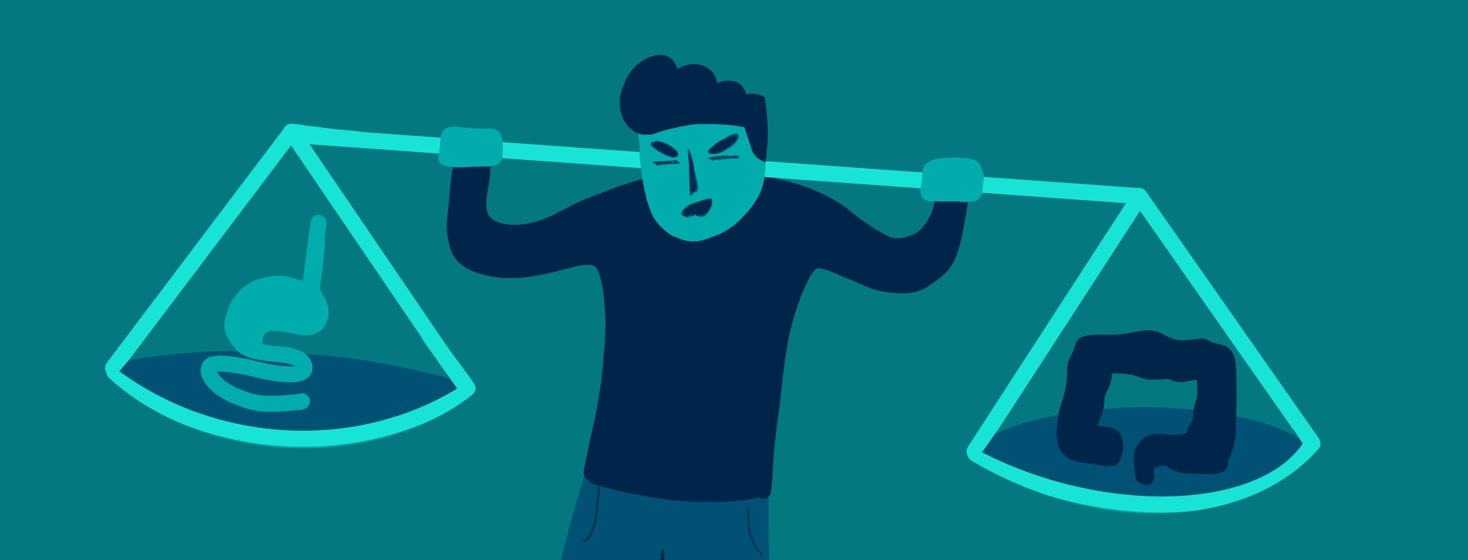Crohn's Disease and My Weight Struggles
"You’re too fat, there's no way you have Crohn's disease. Only skinny people have that."
"You’re too skinny, you must have an eating disorder. It can’t be Crohn's disease."
"Your weight has gone up and down several times, you can't have Crohn’s disease. That's not normal."
Comments from others about weight and Crohn's
Over the last 10 years, I have heard each of these comments along with a plethora of others – comments made by eyeing me from across the room, not by listening to my symptoms or looking at the damage inside my intestines. Comments made by MEDICAL PROFESSIONALS, family members, Uber drivers and even strangers, which have done more than make me feel self-conscious. These comments, regardless of their intentions, have undermined the strength of my story as a patient, prolonged my path to diagnosis, and sometimes even continue to provide challenges in my way of getting prompt and accurate treatment to this day.
To be honest, my weight has always been a struggle for me. Crohn's disease just changed the narrative around the challenges, compounding the complexities of my issues. Before I started living my life in GI distress, I was "heavier set" or "thick" or "big-boned" – no matter how you phrased it, I had some extra fluff that wasn’t easy to get rid of. I was athletic and active but never petite or thin.
Losing weight due to Crohn's disease
The first year I struggled with Crohn’s disease symptoms, I began losing weight progressively. People would tell me that this was the silver lining of being sick, or that I shouldn’t mind that I was spending all my time in the bathroom because I looked great. That pathway continued, and within another year, I was down to my lowest weight as an adult. You could see my collarbones and shoulder bones protruding out from under my T-shirts, I was always freezing, and was maybe more conscious of my body than I had been before.
This began the desperate phase of talking to new doctors, being doubted as a patient, being questioned about if my symptoms were real or fabricated, and being challenged as a liar. This was a low point – for my weight, my mental health, and my personality. I was always defensive and angry, feeling betrayed by my body and the medical professionals who were unable or unwilling to help me. This lasted another few years.
Weight gain from prednisone
Next, enter the chapter titled prednisone: high doses, high frequencies, lengthy durations. I stopped recognizing myself in the mirror. I felt no better, but my weight started climbing. Rapidly. My cheeks filled out, then my stomach, my hips, my thighs. The people closest to me were encouraged that I was looking "healthier" but their judgment was based on my weight, not my spending less time in the bathroom or at home feeling ill.
Weight struggles in remission
Since the time of my Crohn's disease diagnosis four years ago, I've lived in a space of being overweight again. I've been off prednisone for most of that time, and as my guts have become less damaged, I've been able to eat healthier foods. However, my weight won't budge. I've tried so many things to help – different diets, activities, etc., but I think after having lived in starvation mode for so long, my body refuses to let go of the extra pounds, worried that one day in the future we'll get back to desperation again.
As a plus-size Crohn's disease patient, I often feel like I have to defend my diagnosis, present my medical history, or justify my weight with my doctors. It's exhausting, frustrating, and adds another level of challenges to those I balance daily in my life with IBD.
If anything in this article relates to you, I'd be so grateful if you would share it below.

Join the conversation